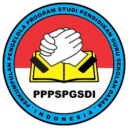Pengaruh Kompetensi Pedagogik Terhadap Evaluasi Pembelajaran Siswa Madrasah Aliyah
DOI:
https://doi.org/10.35568/naturalistic.v8i1.4127Keywords:
Pedagogic Competence, Learning, evaluationAbstract
The background of this research is the weakening of pedagogical competence among teachers of Islamic high schools. The presence of teacher certification does not seem to be in line with the expected results. Therefore, this study aims to determine the effect of pedagogical competence on the ability to evaluate learning among madrasah aliyah teachers. This study uses an analytical descriptive method using a quantitative approach. Data processing using SPSS (test for normality, homogeneity, test, F and T-Test). The findings showed that the average quality profile of teacher pedagogic competence on learning evaluation was 82.03%, meaning that the MA Negeri 2 Serang Banten teacher mastered pedagogic competence and on average the quality profile of the ability to evaluate learning is 80.00%, meaning that teachers of MA Negeri 2 Serang Banten master learning evaluation. The effect of pedagogic competence has a significant positive effect of 0.503/50.3% on learning evaluation. The results of SPSS calculations lie in the details of the categories obtained from research. According to the calculation of the t-test, the t- count value of 3.162 is greater than the t-table of 2.042 for a significant 5% dk = 40-1 = 39. Because the t-count is greater than the t-table, Ha is accepted and Ho is rejected. The research recommendations are addressed to the head of Madrasah MA Negeri 2 Serang Banten, MA education providers, and teachers to improve the ability to evaluate learning requires good pedagogic mastery.
Downloads
References
Aliyyah, R. R., Rachmadtullah, R., Samsudin, A., Syaodih, E., Nurtanto, M., & Tambunan, A. R. S. (2020). The perceptions of primary school teachers of online
learning during the COVID-19 pandemic period: A case study in Indonesia. Journal of Ethnic and Cultural Studies, 7(2), 90-109. https://doi.org/10.29333/ejecs/388
Arlinwibowo, J., Retnawati, H., Kartowagiran, B., & Mustaqim, Y. (2021). Inclusion schools in the Daerah Istimewa Yogyakarta Province , Indonesia: Regulations , facilities and aspirations of Teachers. International Journal of Early Childhood Special Education, 13(1), 9–19. https://doi.org/10.9756/INT-JECSE/V13I1.211002
Arlinwibowo, J., Retnawati, H., Kartowagiran, B., & Kassymova, G. K. (2020). Distance
learning policy in Indonesia for facing pandemic COVID-19: School reaction and lesson plans. Journal of Theoretical and Applied Information Technology,
(14),2828–2838.
Barnawi & Muhammad Arifin (2011), Kinerja Guru professional.
Yogjakarta: Ar-Ruzz Media.
Caena, F., & Redecker, C. (2019). Aligning teacher competence frameworks to
stcentury challenges: The case for the European Digital Competence
Framework for
Educators (Digcompedu). European Journal of Education, 54(3), 356-369. https://doi.org/10.1111/ejed.12345
Caena, F., & Redecker, C. (2019). Aligning teacher competence frameworks to
stcentury challenges: The case for the European Digital Competence
Framework for Educators (Digcompedu). European Journal of Education, 54(3), 356-369. https://doi.org/10.1111/ejed.12345
Desmita, Y., Suarman, S., & Gimin, G. (2021). Pedagogic and professional competencies of social science subject teachers about motivation and learning
achievement. Journal of Educational Sciences, 5(1), 188-197. https://doi.org/10.31258/jes.5.1.p.188-197
Khodjamkulov, U., Makhmudov, K., & Shofkorov, A. (2020). The issue of spiritual and patriotic education of young generation in the scientific, political, and literary
heritage
of Central Asian thinkers. International Journal of Psychosocial Rehabilitation,
(05),
-6701. https://doi.org/10.37200/IJPR/V24I5/PR2020657
Lawson, H. A. (2020). The physical education system is a consequential social determinant. Quest, 72(1), 72-84. https://doi.org/10.1080/00336297.2019.1627224
Murkatik, K., Harapan, E., & Wardiah, D. (2020). The influence of professional and pedagogic competence on teacher's performance. Journal of Social Work and Science
Education, 1(1), 58-69. https://doi.org/10.52690/jswse.v1i1.10
Mulyasa, E. (2013). Uji Kompetensi dan Penilaian Kinerja Guru.
Bandung: PT Remaja Rosdakarya.
Nicola, M., Alsafi, Z., Sohrabi, C., Kerwan, A., Al-Jabir, A., Iosifidis, C., & Agha, R.
(2020). The socio-economic implications of the coronavirus pandemic (COVID-19): A review. International Journal of Surgery, 78(1), 185-193. https://doi.org/10.1016/j.ijsu.2020.04.018
Vicente-Molina, M. A., Fernández-Sainz, A., & Izagirre-Olaizola, J. (2018). Does gender make a difference in pro-environmental behavior? The case of the Basque
Country University students. Journal of Cleaner Production, 176(1), 89-98.
Downloads
Published
How to Cite
Issue
Section
License
Copyright (c) 2023 Naturalistic: Jurnal Kajian dan Penelitian Pendidikan dan Pembelajaran

This work is licensed under a Creative Commons Attribution-NonCommercial-NoDerivatives 4.0 International License.
Copyright of Journal Naturalistic : Jurnal Kajian Penelitian Pendidikan dan Pembelajaran (e-ISSN:2548-8589, p-ISSN:2528-2921).
Open Access Policy
This journal provides immediate open access to its content on the principle that making research freely available to the public supports a greater global exchange of knowledge.
This journal is open access journal which means that all content is freely available without charge to users or / institution. Users are allowed to read, download, copy, distribute, print, search, or link to full text articles in this journal without asking prior permission from the publisher or author. This is in accordance with Budapest Open Access Initiative.






